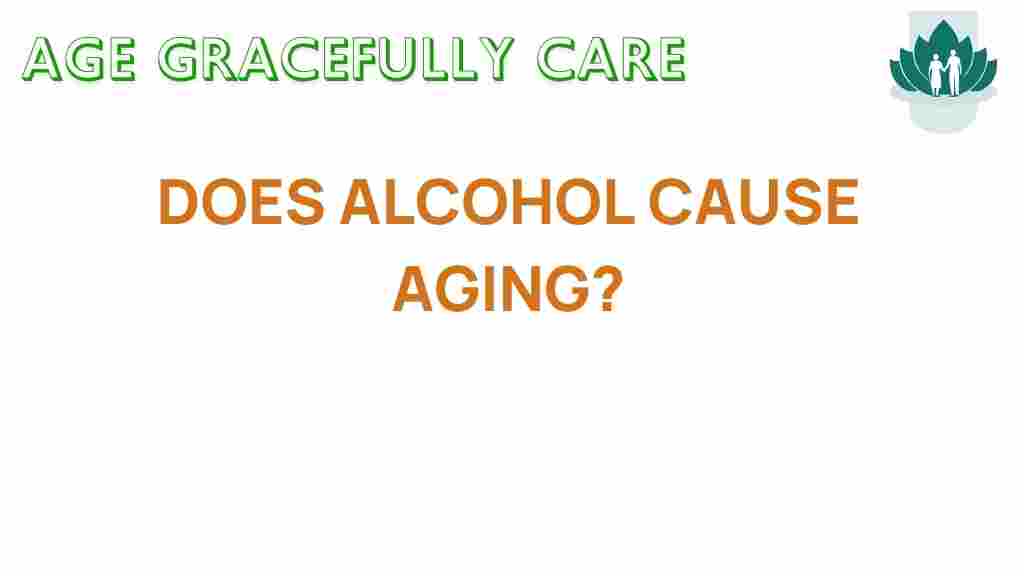The Surprising Link Between Alcohol and Aging: What You Need to Know
Aging is a natural process that affects us all, but did you know that your alcohol consumption can significantly impact how you age? Understanding the relationship between alcohol and aging is crucial for maintaining optimal health, enhancing longevity, and promoting wellness. In this article, we will delve into how alcohol affects your health, skin, hydration, and cellular function, providing you with the information you need to make informed lifestyle choices.
Understanding Alcohol and Its Effects on Aging
Alcohol is a widely consumed substance, often associated with social gatherings and relaxation. However, its effects on the body, particularly as we age, can be surprising. When considering alcohol in relation to aging, several key areas are impacted:
- Health: Alcohol can have both short-term and long-term health effects that may accelerate the aging process.
- Skin: The skin often shows the first signs of aging, and alcohol consumption can exacerbate these effects.
- Hydration: Alcohol is a diuretic, which can lead to dehydration—a significant factor in aging.
- Cellular Damage: Excessive alcohol consumption can lead to cellular damage, impacting overall health and longevity.
The Direct Impact of Alcohol on Health
When we consume alcohol, it is metabolized by the liver, which can lead to various health issues if consumed excessively. Here are some health impacts to consider:
- Increased Risk of Chronic Diseases: Heavy drinking is linked to liver disease, heart disease, and several types of cancer.
- Impaired Immune Function: Regular alcohol consumption can weaken the immune system, making the body more susceptible to infections.
- Weight Gain: Alcohol is calorie-dense and can contribute to weight gain, a factor closely associated with aging.
Alcohol’s Effects on Skin Health
Your skin is often one of the first areas to show the effects of aging, and alcohol can accelerate this process significantly. Here’s how:
- Dehydration: Alcohol consumption can lead to dehydration, which in turn makes your skin look dull and aged.
- Inflammation: Alcohol can trigger inflammatory responses, leading to skin conditions such as rosacea and eczema.
- Loss of Elasticity: Over time, alcohol can diminish the skin’s elasticity, leading to wrinkles and sagging.
The Role of Hydration in Aging
Hydration is essential for maintaining health and wellness as we age. Unfortunately, alcohol can significantly dehydrate the body. Here are some key points to consider:
- Diuretic Effects: Alcohol promotes urination, leading to a loss of fluids and electrolytes.
- Skin Hydration: Well-hydrated skin looks more youthful and vibrant. Dehydration from alcohol can counteract this.
- Overall Organ Function: Proper hydration supports all bodily functions, including digestion, circulation, and skin health.
Cellular Damage and Longevity
Excessive alcohol consumption can lead to cellular damage, which plays a significant role in aging:
- Oxidative Stress: Alcohol can increase oxidative stress, damaging cells and accelerating the aging process.
- DNA Damage: Studies suggest that high alcohol intake is linked to DNA damage, which can lead to premature aging and chronic disease.
- Cellular Repair Mechanisms: Our body’s ability to repair damaged cells diminishes with age, and alcohol can hinder these mechanisms.
Making Informed Lifestyle Choices
Understanding the effects of alcohol on aging can empower you to make healthier lifestyle choices. Here’s a step-by-step process to help you manage your alcohol consumption effectively:
Step 1: Assess Your Current Drinking Habits
Start by keeping a diary of your alcohol consumption for a week. Note the amount and frequency to identify patterns.
Step 2: Set Realistic Goals
Based on your assessment, set achievable goals for reducing alcohol intake. Consider cutting back on the number of nights you drink or limiting the amount consumed on those nights.
Step 3: Explore Alternatives
Replace alcoholic beverages with healthier options such as:
- Sparkling water with a splash of fruit juice
- Herbal teas
- Non-alcoholic cocktails
Step 4: Stay Hydrated
Always drink water alongside alcoholic beverages to combat dehydration. Aim for at least one glass of water for every alcoholic drink consumed.
Step 5: Monitor Your Progress
Regularly check in with yourself to see how reducing alcohol has affected your health, skin, and overall wellness. Adjust your goals as needed.
Troubleshooting Tips for Reducing Alcohol Consumption
Changing habits can be challenging. Here are some tips to help you stay on track:
- Find Support: Share your goals with friends or family who can encourage you.
- Avoid Triggers: Identify situations or environments that trigger your alcohol consumption and try to avoid them.
- Replace the Habit: Engage in new activities or hobbies that do not involve alcohol to fill your time and distract from cravings.
Conclusion: Embracing a Healthier Lifestyle for Longevity
The surprising link between alcohol and aging underscores the importance of making informed choices regarding alcohol consumption. By understanding how alcohol affects your health, skin, hydration, and cellular integrity, you can make lifestyle changes that promote wellness and longevity.
Reducing alcohol intake can lead to numerous health benefits, including improved skin appearance, better hydration, and enhanced overall health. Remember, small changes can lead to significant improvements over time. For more information on maintaining a healthy lifestyle, check out this helpful resource on wellness strategies here.
Ultimately, embracing a healthier lifestyle not only enhances your quality of life but also contributes to a more vibrant and youthful appearance as you age. Stay informed, stay hydrated, and prioritize your health for a longer, healthier life.
For additional insights on the effects of alcohol on health, you can refer to this external link here.
This article is in the category Health and created by AgeGracefullyCare Team
